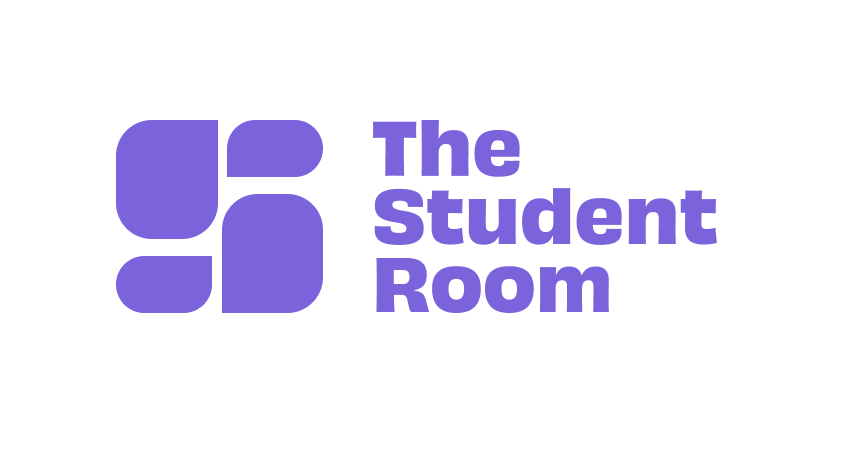For International Women’s Day 2020, The Student Room is doing a week of interviews with female staff who play integral roles in our business. Today we proudly introduce you to a woman who is breathing new life into our client communications and shaking things up across the company; our dynamic new B2B Marketing Manager, Marissa Freeman:
Marissa, you’re quite a new face at The Student Room. Can you tell me what drew you to the role, what you do, and what your vision for the future is?
Well, I needed to pay my mortgage [laughs]. No, in all seriousness, I was excited by the possibility of shaping the way we think about B2B Marketing. I wanted to humanise the B2B marketing territory and bring people to the forefront.
There are so many ways we can market in a B2B space, and becoming B2B Marketing Manager gave me the opportunity to redefine that for The Student Room. And, of course, I wanted to help the team make money.
I had a very unorthodox route into my role: after leaving Project Management within local authority, I fell into B2B video production and social media marketing. One thing led to another, and I found I had a talent in captivating the attention of audiences and understanding strategy.
Personally, I feel marketing is marketing, irrespective of the sector, platform, and whether it is for B2B or B2C products. It’s all about understanding the people behind the purchasing power and chasing the attention.
In terms of what I do, aside from the lead generation responsibilities you’d expect with my role, I oversee B2B communications to ensure our wonderful clients receive the fullest value from our brand. I manage a talented Marketing Executive and my strategic focus is ensuring clients have the best possible access to our solutions and make innovative use of them.
My team produces the blogs, emails and videos you’ve probably all seen on LinkedIn or our website.
If a client has bought a solution from us, it’s important that the benefit of that product stretches as far and wide as possible. That’s why I also work closely with Account Directors to understand the pain points impacting the industries we work with.
My vision for the future is simple and ambitious – to revolutionise B2B Marketing.
You are a mother with a young child and you work full time. Is that challenging?
Yes and no. My son is five and for most of that time I’ve been a single mum.
Overall, becoming a parent has added a wealth of value to my working life. I am more resilient, assertive, strategic, and I’ve perfected time management skills.
I have also developed patience in bucket loads, which has been especially useful when working with challenging personalities because ultimately even adults can have tantrums. When you can conquer the toddler tantrum, you can certainly overcome a senior-level corporate tantrum.
But obviously there are huge practical considerations when juggling a full-time career with the full-time job of motherhood. There can be a perception that mothers are somehow preoccupied with their children, and unable to focus on their job.
I remember in one job interview (not at The Student Room) a Director asked if I would ‘cope’ working full time with a child. I realised the double standard in this question and my response was “do you ask all the fathers in your organisation how they cope with a full-time job?” Interestingly, I did get that job and I coped just fine.
When it comes to women in the workplace and leadership, where do you think we still have work to do?
Women continue to carry the lion’s share of childcare responsibilities within the family, and therefore businesses must do more to recognise this challenge and enable more flexible working arrangements.
A lot of decision-making happens outside the boardroom, which can intentionally or unintentionally exclude women – such as at parties, during golf weekends, during client dinners, or at strip clubs.
Also, childcare costs in UK are staggering and force many women out of the workplace because in many cases, nursery costs are equivalent to a full-time salary. School holidays present a nightmare, and the education system does not offer adequate affordable wrap-around childcare.
So, I think the solution is a joint effort between the government and industry – but it should be led by government.
How have you collaborated with and boosted other women in your organisation?
I have a female-only B2B Marketing team (by accident, not design) which involves managing and mentoring an exceptionally talented copywriter/ B2B Marketing Executive, Katie.
I work in partnership with her to develop her strengths and reinforce positive messages that will empower her in her role. I see it as my role to create a supportive space in which Katie can lean in, speak up, and take control of her projects.
I am a strong advocate of the concept of internal PR. I do feel as women, we must work twice as hard at creating visibility around our achievements. Control is an interesting concept, and it’s a bit of a rule in my team that we take any and all issues into private meeting rooms. A female-only team appearing to be ‘in a flap’ could be misinterpreted, and this is a protective measure I have taken to promote the reputation of my team.
Having said that, The Student Room is an excellent organisation with talented people of all genders. I love working with men and non-binary colleagues too, and it’s such a supportive environment. Much of my support at TSR has come from male colleagues too, thankfully, so I don’t only rely solely on women for the support at work.
How do you think your experience of being a woman in 2020 differs from what your mother’s generation would have experienced at the same age?
My mother has a glowing career (she is a paediatric nurse specialist) however her career wasn’t a foregone conclusion and came about by circumstance. Her aim when she left school was to be a housewife and mother.
By the time she was 20, she was already a mother (to me). She certainly didn’t spend her youth dreaming of her career in the way I did.
I think sexual harassment was not seen as such a big deal back then, despite the incredible progress as a result of first and second-wave feminism.
There was a feeling the bigger fish had been fried, regarding voting rights, domestic violence laws, and overarching human rights.
However sexual harassment, especially in the workplace was rife, and those microaggressions were not part of the public dialogue. They are today.
Social media, MeToo and a recent awakening in social consciousness have helped progress our position on this issue and change the narrative for women enormously.
It’s important that men have joined the cause to become feminists with us, and I do believe this is one of the successful differences between second-wave feminism and post-feminist movements. We do need men on our side to gain equal rights and equal outcomes.
What are your hopes for the future for women, both globally and within your organisation?
In a global sense, I am deeply troubled by FGM (female genital mutilation), acid attacks, forced child marriage, female education, economic disparity, female trafficking and public executions for adultery.
In the UK, I am personally troubled by the high rates of domestic violence and poor rates of successful rape convictions.
I am also impacted by the obvious misogyny of the British tabloid press. I have a son and hope I raise him to be a man who is a feminist and part of the solution, not the problem.
Who is your favourite female role model and why?
My mother. I could dedicate an entire book to her, but in brief her creativity, humour, courage and strength has shaped and moulded our family and changed our trajectory in a way that will leave its mark on us forever.
She was my first example of feminism, and she did it powerfully, but uniquely. It was kind of her own brand.
She is a true artist and I am super lucky to be her daughter; I had a totally alternative upbringing.
Otherwise, pretty much all the incredible women we all know and love – Alexandria Ocasio-Cortez, Meghan Markle, Dolly Parton, Michelle Obama, Beyonce, Princess Diana, Lauryn Hill.
I love that combination of strength and glamour, and it’s usually women who carry that off the best.
At work, I’ve been lucky enough to be mentored by some exceptional female leaders. At The Student Room two women I see as role models are Amii Lanham and Lorna Greville.
Both women are real forces of power who can wield power and influence without betraying their personal characteristics.
It’s common for women to lose their personal identity and assimilate to male characteristics when navigating up the corporate ladder. Not these two!
What do you love about being a woman?
Everything. I can’t imagine waking up each day without the amazing feeling of being a woman.
It drives me, boosts me, protects me and emboldens everything I do. I think womanhood is almost ethereal.
There are tangible aspects, such as being able to give and carry life, and the powerful beauty that we all possess as females.
But there is also this non-tangible quality that is difficult to describe, an immaterial strength and sense of self that comes from womanhood. I feel incredibly lucky to be female.
Thanks Marissa. If you enjoy reading about Team TSR from a female perspective, keep checking out our blog. There’s more to come.
Interview by:
Katie Hale
B2B Marketing Executive
The Student Room


